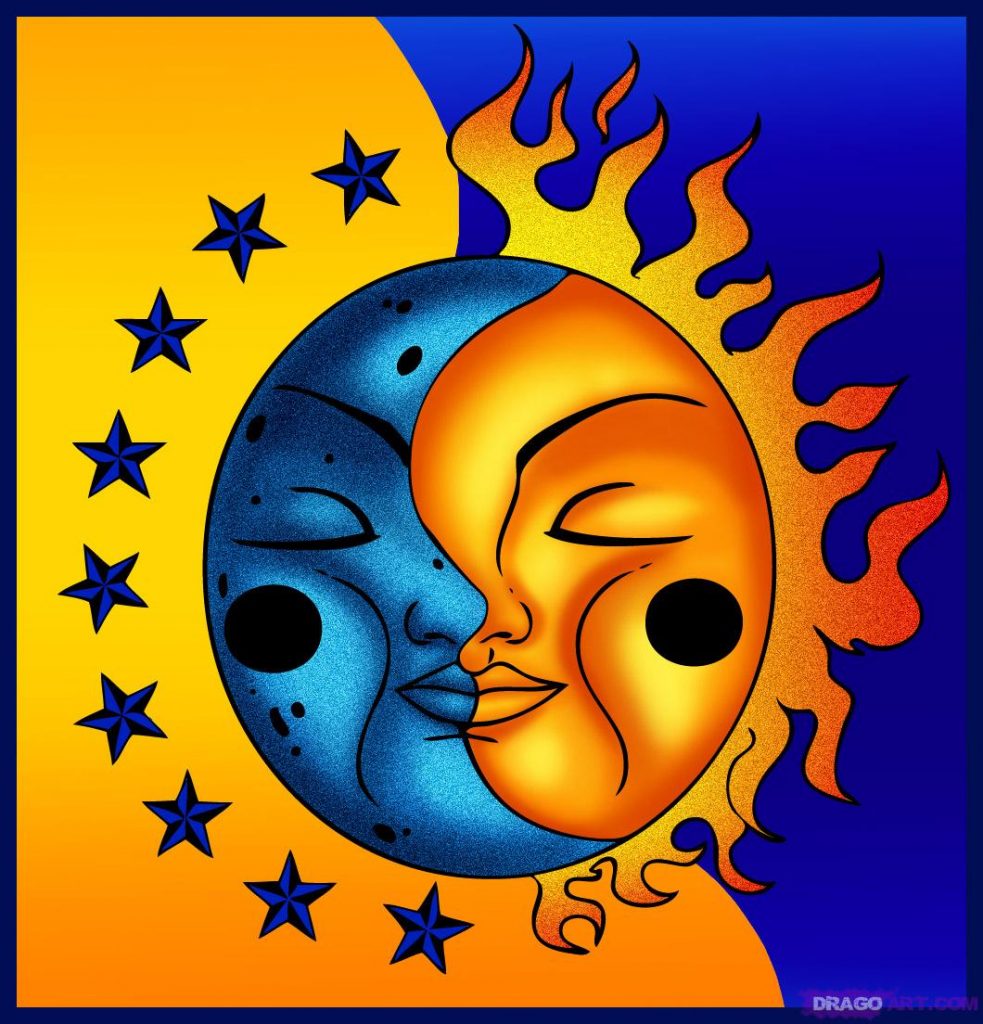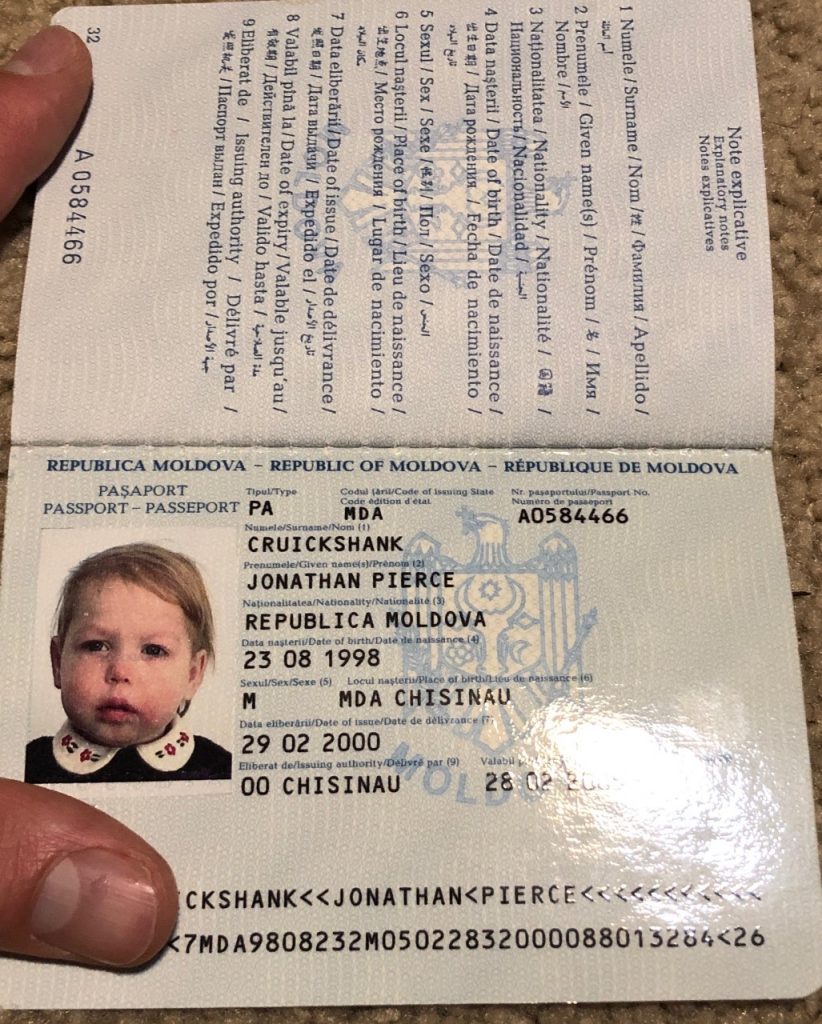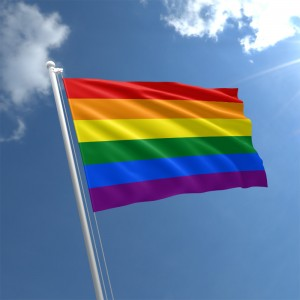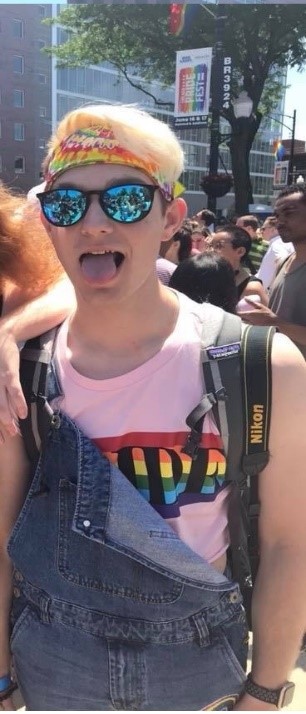
On the day of my interview with Alex, the sky was gloomy, and it was raining. The library was framed in grey which made the pale yellow stand out. During our interview, I kept remembering how he used to be when we first met. His story touched my heart, and I realized how little I knew about gender identity and sexuality. Being a firm believer in education, Alex explained a lot of things to me and having that information compelled me to spread awareness too.
Alex has been my friend since eighth grade. I remember when he still used his dead name and tried dating girls to express how he felt. He had long dirty blonde hair with blue streaks that framed his face because of his middle part. For Alex, the indifference he experienced stemmed from his gender identity, not his sexuality, so no matter how many girls he dated there was still a chasm which needed to be filled. He wouldn’t find out until we were juniors in high school what filling that chasm truly meant to him, he wanted to be loved and accepted like anyone in high school does. However, when Alex found a way to express his true self (when he gained the knowledge to describe what he’d been going through since childhood) most people turned him into a joke. The change did not come easily – I can still hear how others taunted him when I think about walking down the main hallway of our high school. Insults echo over the chatter and background noise; I can’t imagine how loudly the insults echo in Alex’s mind. Alex chose to plant himself and grow where very few people loved and accepted him.

When I asked Alex his biggest challenge growing up, he explained, “I didn’t fit in with the guys because obviously, I was a girl so it was like ah I belong with the boys but they don’t want me.” (01:31) It’s as if children are seeds, all different shapes and sizes, with the potential to grow into anything, yet they’re still categorized based on their gender. His family held tight to this notion that an individual must be one or the other; boy or girl. So, growing up, when all the girls would gather to play, Alex would join them even though he longed to be with the boys. Boys did the things Alex liked doing too, but they were unaccepting which left Alex alone most of the time. For quite a long time Alex didn’t know he was meant to be male, he just thought he was a tomboy.
In our senior year, Alex and I took a creative writing class for dual credit. It was the first class we had together since sophomore year, and the distance between us was clear. Regardless, I noticed him and talked with him to bridge the gap. He didn’t wear all the negative things he’d been through like I expected, he just remained kind and understanding of all my questions. Transgender, this is who Alex is, but it is not everything Alex is. When he learned about his gender so much of his life was explained. Long hair, a high-pitched voice, and a soft chest weren’t suited to him, but they weren’t things he could easily change. So, I asked “how does your gender impact your everyday life?” in order to understand all the effort he puts into expressing himself (04:07). Every day Alex puts a decent chunk of time into presenting himself a certain way to be perceived as male. The long hair was cut short, he made his voice deeper, and his soft chest was compressed by a binder. All these things helped him gain some confidence in himself; however, confidence is only part of the battle. Depending on the place Alex must decide which restroom to use during his transition. He explained, “At work and certain places I’ll go into the men’s room because ya know that’s where I belong but in places like high school I would go into the women’s restroom because it wasn’t safe.” (04:51) Being transgender has an unnatural number of challenges Alex faces every day, the biggest of which being the unacceptance from peers and other individuals.
Body dysphoria plays a huge role in how Alex feels about himself. The disease does not treat him well, it makes him extremely uncomfortable with his body unless he’s made himself look, act, and sound more manly. He discussed overcoming this feeling as learning “dysphoria is not self-hate, it is not that I hate my body, it’s just that it doesn’t fit me.” (21:48) Alex has prevailed through some of his dysphoria and the anxiety that manifests with it because he knows he can be healthy and be himself. One day, to help himself with the processing of overcoming, he explored the men’s restroom at Independence Center. This was finally his chance to use the restroom he was meant to use. At first, it was great; he went in feeling triumphant, and he was well on his way to blossoming into his true self. Two big, brute fellas in flannels and cowboy boots stopped Alex as he exited the bathroom stall. Alex felt terrified, yet he reminded himself to remain calm. After all, he had just started growing to accept himself and had finally figured out what eases his mind. These men were mean, and scary. They pushed Alex down, forcing him onto a cold, dirty bathroom floor, making him feel horrible and incredibly unaccepted. Alex remembers the situation as the men “beat me to a pulp almost. . . they called me a tranny and more disgusting words after they beat me up because I wasn’t like a guy. I wasn’t a cis man.” (07:55) Some people tried to help, they thought Alex should go to the hospital to make sure he wasn’t severely hurt or physically broken. Alex didn’t go, he wanted to pretend that the whole incident never happened.
Later, Alex was at work when he finally passed out because of all the trauma he had suffered. He didn’t open up to anyone about what happened though until all the wounds had fully healed. There came a day, almost two years later, when Alex had to write a creative nonfiction piece for the creative writing class we took together. This piece was going to be his way to finally talk about what happened, and it would expose the horrors he experienced while just trying to be true to himself. First, he proposed the idea to all his new friends, the ones he had made through work that loved and accepted him for his true self. Before this, they had no idea about his experience, and when they found out they were upset they didn’t know sooner. His friends gave him the love he needed to finish healing and grow into a beautiful person. Exactly the kind of person he was meant to be. From his experience, Alex has acquired the courage to tell his story, stand up for himself more, and to even stand up for others.
Alex and I have come a long way in the last six years. He made it clear during the interview that he has learned a lot of things he wants to pass on to help people accept what they do not understand. Education can transform how everyone thinks and it is an important tool. The final questions I asked Alex dealt with what he wants others to know about the transgender community and how people could be more tolerant. A key component of tolerance is recognizing that transgender individuals are valid and real. He said, “Mostly just by talking about it [gender identity], that would erase a lot of fear.” (29:49)
















